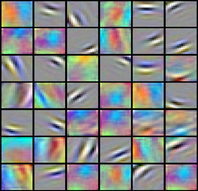Slice-based Dictionary Learning for Computed Tomography
Spring 2020
Master Semester Project
Project: 00394

In computed tomography (CT), the goal is to reconstruct a 3D object from a set of its 2D projections. Typically, this reconstruction task is formulated as an optimization problem where one also exploits certain properties of the signal of interest such as sparsity. Dictionary learning is a technique which uses training data to find a basis in which our signal can be represented in a sparse manner. Standard dictionary learning approaches are patch-based and thus computationally inefficient for 3D data. The goal of this project is to explore an alternate framework where the dictionary is based on 2D slices extracted from the volume. The project will be implemented in MATLAB.
- Supervisors
- Pakshal Bohra, pakshal.bohra@epfl.ch, BM 4.140
- Michael Unser, michael.unser@epfl.ch, 021 693 51 75, BM 4.136
- Thanh-An Pham